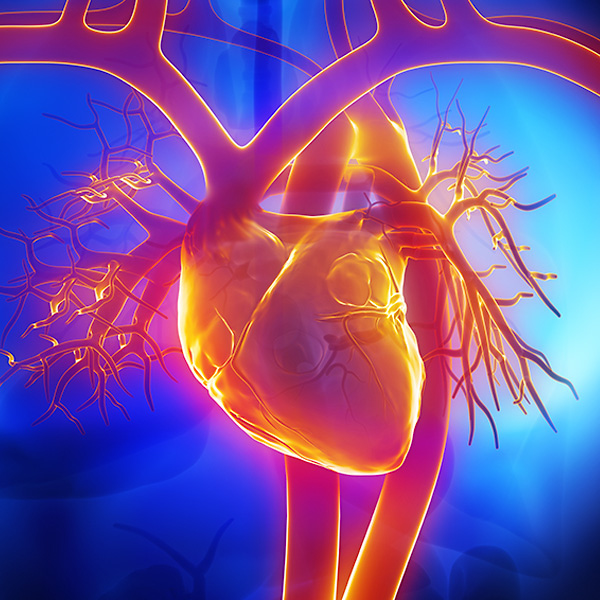At Echocardiography Drummoyne, we are dedicated to providing the highest quality care to our patients. Our team of expert echocardiographers uses state-of-the-art technology to diagnose and treat a range of common heart conditions. We understand that heart conditions can be confusing and intimidating, so we strive to make the process as straightforward as possible. Through our comprehensive echocardiography Drummoyne services, we can detect, diagnose, and treat various heart conditions to help our patients achieve better overall health.
Understanding echocardiography Sydney
Echocardiography Sydney is a non-invasive test that uses sound waves to create detailed images of the heart and its structures. This diagnostic tool is used to diagnose a variety of heart conditions and abnormalities. It is also used to monitor the heart’s health in patients with known heart conditions. Echocardiography Sydney is safe and painless, and it doesn’t expose patients to any radiation. During the test, a small probe called a transducer is placed on the chest. The transducer emits sound waves that bounce off the heart’s structures and create images that can be viewed on a screen. Echocardiography Sydney can help detect a wide range of heart conditions, including heart valve problems, congenital heart defects, cardiomyopathy, aortic aneurysms, and heart failure. It can also be used to monitor the effectiveness of heart medications or to assess the overall health of the heart. At Echocardiography Drummoyne, our skilled technicians and cardiologists are dedicated to providing the highest quality care for our patients. We use state-of-the-art equipment to perform echocardiograms and other cardiac tests. Our team will work closely with you and your healthcare provider to diagnose and treat any heart conditions you may have. If you have questions about echocardiography Sydney or any other cardiac testing, please don’t hesitate to contact us. We are always here to help and provide the best care possible for our patients.
 What is stress test echocardiogram Sydney?
What is stress test echocardiogram Sydney?
Stress test echocardiogram Sydney is a type of echocardiogram that involves imaging the heart while it’s under stress. The test is usually performed by a cardiologist to assess the heart’s function under different conditions. During the test, you’ll be hooked up to an electrocardiogram (ECG) machine which will monitor your heart rate and rhythm. You’ll then be asked to walk on a treadmill or ride a stationary bike. The level of exertion will gradually increase over time until your heart is beating at its maximum rate. As you exercise, the echocardiogram will be used to create images of your heart. This will allow the cardiologist to see how well your heart is functioning under stress, and to detect any areas of the heart that may not be receiving enough blood or oxygen. Stress test echocardiograms are typically used to diagnose coronary artery disease, which is a common cause of chest pain and shortness of breath. The test can also be used to monitor the effectiveness of treatment for heart conditions and to assess the overall health of the heart.
Cardiologists Drummoyne: Common Heart Conditions
When it comes to your heart health, it is important to see experienced cardiologists Drummoyne for proper diagnosis and treatment. Echocardiography Sydney is a non-invasive test that uses ultrasound waves to create images of your heart. This test is commonly used to diagnose heart conditions, such as cardiomyopathy, congenital heart defects, aortic aneurysms, heart failure, and cardiac arrest. Cardiomyopathy is a disease of the heart muscle that affects the way your heart pumps blood. Symptoms may include shortness of breath, fatigue, and swelling in your legs and ankles. With the help of echocardiography Sydney, cardiologists Drummoyne can accurately diagnose and develop a treatment plan to manage this condition. Congenital heart defects are heart abnormalities that are present at birth. These defects can cause symptoms such as poor feeding, difficulty breathing, and fatigue. Echocardiography Sydney can detect these abnormalities and help cardiologists Drummoyne plan the best treatment approach. Aortic aneurysms are a bulge in the wall of the aorta, which can cause life-threatening complications if they burst. Echocardiography Sydney can detect these aneurysms and help cardiologists Drummoyne decide on the best treatment plan, which may include surgery or monitoring. Heart failure is a condition where the heart cannot pump enough blood to meet the body’s needs. Cardiac arrest occurs when the heart suddenly stops beating, and the body’s blood supply is disrupted. These conditions are serious and require prompt diagnosis and treatment. With echocardiography Sydney, cardiologists Drummoyne can diagnose and create a personalized treatment plan for patients with these conditions.
Holter monitor test Sydney
The Holter monitor test Sydney is a diagnostic procedure that records your heart’s electrical activity for 24-48 hours. The test is done using a small, portable device called a Holter monitor, which is attached to your chest via electrodes. The device records every beat of your heart during the test period, providing cardiologists with valuable information about your heart rhythm.
Holter monitor test Sydney is useful in diagnosing heart conditions that may not be detected during a regular ECG test, such as arrhythmias. An arrhythmia is an abnormal heart rhythm that can cause dizziness, shortness of breath, or fainting. The test can also be used to monitor the effectiveness of medication or other treatments for heart disease. If you are undergoing a Holter monitor test Sydney, you will need to keep a diary of your activities during the test period, noting any symptoms you experience, such as palpitations or chest pain. This information is then compared to the recorded heart activity to identify any patterns or abnormalities.
Cardiomyopathy
Cardiomyopathy refers to a condition in which the heart muscle becomes damaged or weakened, making it difficult for the heart to pump blood effectively. There are three types of cardiomyopathy, including dilated cardiomyopathy, hypertrophic cardiomyopathy, and restrictive cardiomyopathy. Dilated cardiomyopathy is the most common type and occurs when the heart muscle becomes stretched out and thin, reducing its ability to contract properly. Hypertrophic cardiomyopathy is a condition in which the heart muscle becomes abnormally thick, making it harder for the heart to pump blood. Lastly, restrictive cardiomyopathy is a condition in which the heart muscle becomes stiff, causing the heart to have trouble filling with blood. Symptoms of cardiomyopathy can include fatigue, shortness of breath, swelling in the legs, and irregular heartbeats. Diagnosing cardiomyopathy typically involves a combination of physical exams, medical history, and diagnostic testing like echocardiograms and Holter monitor tests. Treatment for cardiomyopathy may vary depending on the type and severity of the condition but often includes medications to help manage symptoms and improve heart function, lifestyle changes like a heart-healthy diet and regular exercise, and in some cases, surgery or implantation of a pacemaker. At Echocardiography Drummoyne, our team of experienced cardiologists is dedicated to providing comprehensive care for all types of heart conditions, including cardiomyopathy. If you are experiencing symptoms or have concerns about your heart health, don’t hesitate to schedule an appointment with us today.
Congenital Heart Defects
Congenital heart defects are a group of conditions that occur when the heart or blood vessels near the heart do not develop properly before birth. These defects can affect the heart’s shape, size, or how it functions. They can vary from mild, requiring no treatment, to severe, requiring immediate medical attention. Echocardiography Sydney is an effective tool for detecting congenital heart defects in infants and children. During the procedure, high-frequency sound waves are used to create detailed images of the heart’s structures, enabling doctors to diagnose any abnormalities. Several types of congenital heart defects can be diagnosed using echocardiography Drummoyne, including:
- Atrial Septal Defect (ASD) – An ASD is a hole in the wall that separates the heart’s upper chambers. This defect can lead to extra blood flow in the lungs and increase the risk of developing pulmonary hypertension.
- Ventricular Septal Defect (VSD) – A VSD is a hole in the wall that separates the heart’s lower chambers. This defect can cause oxygen-rich blood to mix with oxygen-poor blood, leading to decreased oxygen levels in the body.
- Tetralogy of Fallot – Tetralogy of Fallot is a combination of four congenital heart defects that affect the heart’s structure and function. This condition can lead to cyanosis (a blue tinge to the skin due to lack of oxygen).
- Coarctation of the Aorta – Coarctation of the aorta is a narrowing of the aorta, the main artery that carries blood from the heart to the rest of the body. This defect can lead to high blood pressure and heart failure.
- Transposition of the Great Arteries – Transposition of the great arteries is a condition in which the two main arteries leaving the heart are reversed. This defect can lead to low oxygen levels in the body and requires immediate surgical intervention.
Early detection and treatment of congenital heart defects are critical to prevent complications and ensure proper heart function. If you suspect that your child has a congenital heart defect, seek medical attention from a cardiologist Drummoyne who specializes in pediatric cardiology. With the help of echocardiography Sydney, the doctor can diagnose the condition and develop a treatment plan to optimize your child’s heart health.
| Other Good Articles to Read |
| Niche Blogs Connect |
| Blogs 97 |
| Blog Stitution |
| Blogs Unplugged |
| Blogs Cotch Rouge |
| Blog Signatr |
| Blog Sintonias |
| Blog Zilla |
| Consumer Forums |
| Finance Forums |
| G Blogs |
| Too Blog |



